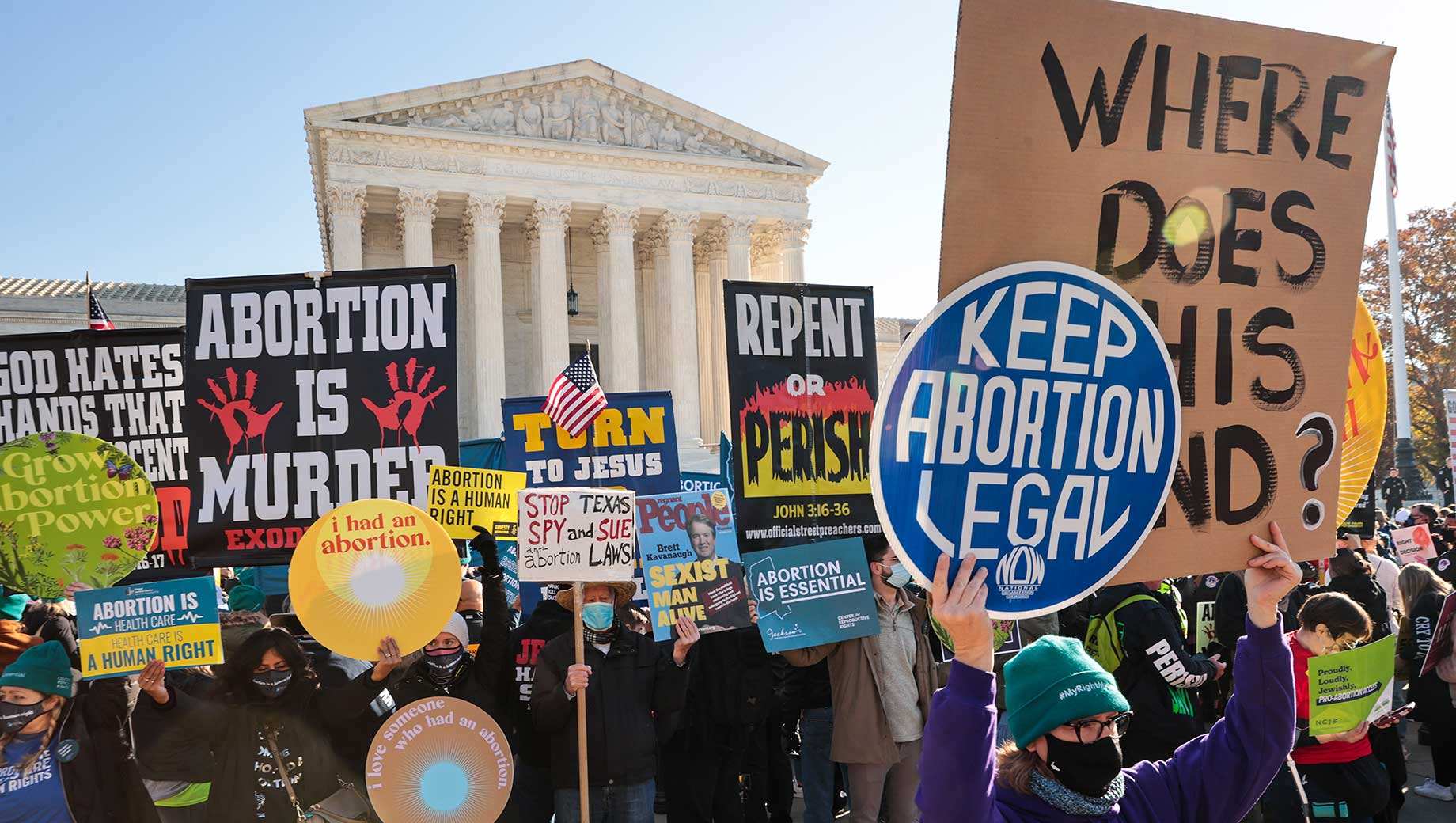The Supreme Court overturns Roe and Texas now counts fetuses as “persons.” Naturally a woman carrying such a person in Plano, Texas does the math and quickly deduces she and yet to be born person meet the requirement for driving in the HOV lane (“high occupancy vehicle”, meaning two or more people). Logical, right? No, said the officer giving her the ticket, only persons “outside the body” count. So out of your body counts when driving in Texas, but how about out of your mind? That might explain a lot.
If fetuses are legal persons, HOV lanes are the least of challenges to come. Why should the child tax deduction be limited to persons outside the body? I’ve always heard it said that pregnant people eat for two, so makes perfect sense to get that deduction nine months earlier. (Legislation to that effect has already been proposed in Georgia.)
And why only count persons out of the body for the census? Those in-the-body people count too! And how about their rights as guaranteed by the Constitution? We must protect their Second Amendment rights above all else!
This is, of course, absurd. I can accept the logic of the proposition that life begins at conception, though I disagree, but to define a fetus as a full human being under the law will only result in highly problematic consequences. There are approximately 1 million miscarriages in the U.S. each year. If just 10% of those are due to anything other than natural causes, or even suspected as caused by human action or negligence, that is 100,000 potential cases of manslaughter. Consider what happens when a woman, already dealing with the grief of a failed pregnancy, also has to contend with the threat of prosecution should her miscarriage be perceived as “suspicious”. Do we really want to go there?
Religion of course is used to justify conclusions about the beginning of life. However, that a fetus is not yet a full human being is deeply rooted in the traditions of many religions. The infamous “eye for eye, tooth for tooth” passage in the book of Exodus, often used as a basis for capital punishment, is preceded by a law stating that if a pregnant woman is injured in a fight, causing a miscarriage, then the one responsible shall be fined, whereas murder results in a much greater punishment. (Exodus 21:22-25) The implication is clear. The value of a fetus may be substantial, but it is not murder.
Islam follows a similar logic. One of Islam’s earliest judges determined that the killer of a pregnant woman should pay “diya” (blood money) for the woman’s death but “ghurra” (typically one tenth of diya) for the death of the fetus. The Qur’an speaks of stages of development of the fetus from sperm (the role of the egg was not yet known) to a body with bones and flesh. Later traditions expand this notion of gradual development to indicate that the soul is given to the fetus after 120 days.
Vedic literature in Hinduism teaches that the soul enters the womb at conception, however, a significant tradition within Hinduism states that the fetus comes to life in the 7th month. Other traditions within Hinduism suggest a more gradual development of personhood between the third and fifth months of pregnancy.
The range of views within the Christian tradition are also wide. The Catholic Church maintains that “the human being is to be respected and treated as a person from the moment of conception.” Most conservative denominations concur. Other denominations, such as my own, widely affirm the sanctity of human life as a gift from God but do not define when the fetus becomes a human being. In these traditions, the fetus is seen as a potential human life and that potentiality must be weighed over against other factors to determine if abortion is justifiable.
My own view, rooted in my religious beliefs as a Christian minister and in the philosophy of Alfred North Whitehead (known as Process Thought), is that life is a continuum. There is no single point when one can say that life begins. A zygote is in the process of becoming a person and has a long way to go to become fully human.
If I were to cite any verse as a text for the beginning of life, it would be the conclusion of James Weldon Johnson’s creation poem (please excuse the gender exclusive language):
Up from the bed of the river
God scooped the clay;
And by the bank of the river …
This Great God,
Like a mammy bending over her baby,
Kneeled down in the dust
Toiling over a lump of clay
Till He shaped it in His own image;
Then into it He blew the breath of life,
And man became a living soul.
Amen. Amen.
Call it the Breath of Life, call it the Spirit of God or call if the Soul. That breath is what gives us life, not outside, but in the body. Life may begin months before, it may begin eons before, but personhood begins at birth.
